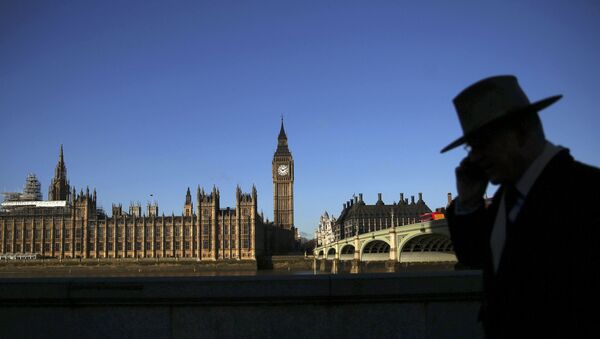In a report released Tuesday, the parliamentary body pointed out how the draft Investigatory Powers Bill, dubbed the Snoopers' Charter and sponsored by Theresa May's Home Office, would fail to protect UK citizens' privacy.
"Given the background to the draft Bill and the public concern over the allegations made by Edward Snowden in 2013, it is surprising that the protection of people's privacy — which is enshrined in other legislation — does not feature more prominently," the report reads.
The committee recommended that the bill "include a single additional Part that addresses privacy safeguards and clearly sets out universal privacy protections."
The Intelligence & Security Committee Report on the
— PrivacyInternational (@privacyint) February 9, 2016
draft #IPBill can be read here: https://t.co/cLypYI9jUG pic.twitter.com/ay2NrwHM6r
Another shortcoming singled out by the committee's report is that the proposed law would extend the UK's already far-reaching surveillance program, enabling so-called "bulk surveillance."
If passed into law as it is, the bill would require that all Internet service providers store the browsing histories of all their customers for one year.
The Investigatory Powers Bill risks undermining the UK’s strongly performing Tech sector, our new report warns https://t.co/cvXxftutTt
— Sci & Tech Committee (@CommonsSTC) February 1, 2016
In the past, the measure has even been criticized by a former NSA official, who claimed mass data collection would make investigations less effective and endanger citizens.
The Committee underlined that much of the collection of personal data would happen without a warrant.
"The acquisition, retention and examination of any Bulk Personal Dataset is sufficiently intrusive that it should require a specific warrant," the report goes on.
"We recommend that Class Bulk Personal Dataset warrants are removed from the new legislation."
Our statement on the ISC report: https://t.co/AoLpL38fqZ Full text of ISC report: https://t.co/c8OloaGPD4 #IPBill pic.twitter.com/xk9NLGjRVu
— PrivacyInternational (@privacyint) February 9, 2016
The Committee's recommendations have been welcomed by UK privacy advocates. Harmit Kambo, director of Campaigns & Development at London-based Privacy International, told Sputnik that the report was "extremely positive."
"There have been problems with this legislation, because after the Snowden revelation it should have put privacy at its heart, but it failed completely," Kambo told Sputnik.
Kambo said he hoped the report would have "a massive impact on the redrafting of the bill."
"It's vital that the Home office responds to the ISC's recommendation. It should not rush the bill's publication."
In criticizing the draft bill, Kambo said it was dogged by "utter lack of transparency," and that it gave the Home Office excessive powers when it comes to issuing warrants. "Judges should be in charge of that," he said.


